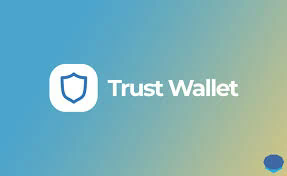A Comprehensive Analysis of Crypto Wallets: Understanding the Pillars of Digital Finance
### Introduction to Crypto Wallets
In the rapidly evolving landscape of digital finance, the importance of understanding cryptocurrency wallets cannot be overstated. Crypto wallets are essential tools that facilitate the storage, management, and transfer of cryptocurrencies such as Bitcoin, Ethereum, and many others. This article aims to provide a thorough and detailed analysis of crypto wallets, exploring their various types, functionalities, security measures, and the critical role they play in the broader context of blockchain technology and digital assets.
### What is a Crypto Wallet?
At its core, a crypto wallet is a software program or a hardware device that enables users to manage their cryptocurrency holdings. Unlike traditional wallets that store physical currency, crypto wallets do not hold the actual cryptocurrency. Instead, they store the public and private keys that are necessary for executing transactions on a blockchain. The public key functions like an account number to which others can send crypto, while the private key serves as a password that enables the owner to access and manage their cryptocurrency.
### Types of Crypto Wallets
Crypto wallets can be broadly categorized into two main types: hot wallets and cold wallets. Each type offers distinct advantages and disadvantages, making them suitable for different user needs.
#### Hot Wallets
Hot wallets are connected to the internet and are typically considered more user-friendly and convenient for daily transactions. There are several forms of hot wallets, including:
1. **Web Wallets**: These wallets are accessed through a web browser and are hosted by third-party providers. Web wallets are often easy to use, making them a popular choice for beginners. However, they come with increased risks as users share custodial control with the provider.
2. **Mobile Wallets**: Designed for smartphones, mobile wallets offer flexibility and convenience for on-the-go transactions. Many mobile wallets come with security features, such as biometric authentication and multi-signature options, but they are still vulnerable to malware and hacking attempts.
3. **Desktop Wallets**: Installed on personal computers, desktop wallets provide greater control over private keys compared to web wallets. They often offer enhanced security features, but users must ensure their computers are secure from potential threats.
#### Cold Wallets
Cold wallets, on the other hand, are offline storage solutions designed for long-term cryptocurrency storage, providing heightened security against online threats. The main types include:
1. **Hardware Wallets**: These physical devices store private keys offline, making them immune to online attacks. Hardware wallets are considered one of the most secure methods for storing cryptocurrencies, although they can be more expensive than other options.
2. **Paper Wallets**: A paper wallet involves printing out the public and private keys on a physical piece of paper. This method keeps the keys completely offline, but it comes with risks such as loss, damage, or theft of the paper itself.
### The Anatomy of a Crypto Wallet
The architecture of a crypto wallet comprises several critical components that work in unison to facilitate transactions and ensure security.
#### Public and Private Keys
As mentioned earlier, the two essential elements of a crypto wallet are the public and private keys. The public key allows others to send cryptocurrency to the wallet, while the private key must remain confidential to authorize transactions. It is crucial for users to maintain the privacy of their private keys since anyone with access to them can spend the associated funds.
#### Wallet Addresses
Wallet addresses are derived from public keys using hashing algorithms. They act as the destination for receiving cryptocurrencies. Wallet addresses are typically alphanumeric strings, and different cryptocurrencies have varying address formats.
#### Transaction History
Most crypto wallets maintain a transaction history, displaying all incoming and outgoing transactions. This feature helps users monitor their activity and manage their portfolios effectively.
### Security Considerations
Security is paramount in the world of crypto wallets, given the irreversible nature of cryptocurrency transactions and the potential for loss of funds. Users must be aware of several key security practices:
1. **Backup Strategies**: Regularly backing up wallet data can prevent loss of access due to hardware failure, loss of devices, or accidental deletion. Users should store backups in secure, offline locations.
2. **Two-Factor Authentication (2FA)**: Implementing 2FA adds an additional layer of security by requiring users to verify their identity through another method, like a mobile device, before accessing their wallets.
3. **Phishing Awareness**: Users should be vigilant of phishing scams that attempt to steal personal information by impersonating legitimate services. Always verifying website URLs and avoiding clicking on suspicious links is essential.
4. **Multi-Signature Wallets**: Multi-signature wallets require multiple private keys to authorize a transaction. This feature is useful for businesses and individuals who want to enhance security by involving multiple parties in decision-making.
5. **Using Trusted Wallet Providers**: Researching and choosing trusted wallet providers can mitigate the risks associated with third-party services. Reading reviews and understanding the provider’s security protocols is advisable.

### The Role of Crypto Wallets in the Blockchain Ecosystem
Crypto wallets are integral to the overall blockchain ecosystem. They empower users to interact with various decentralized applications (dApps), participate in decentralized finance (DeFi), and engage in non-fungible token (NFT) trading. Understanding this interconnectedness is vital for grasping the broader implications of cryptocurrency.
#### Decentralized Finance (DeFi)
DeFi platforms have surged in popularity, allowing users to lend, borrow, and earn interest on their cryptocurrency holdings directly from their wallets. Smart contracts, a hallmark of blockchain technology, automated these processes, reducing reliance on traditional financial intermediaries. Crypto wallets play a crucial role in enabling users to access DeFi services seamlessly.
#### Non-Fungible Tokens (NFTs)
NFTs have revolutionized the digital art and collectibles market, providing unique ownership rights encoded on the blockchain. Crypto wallets act as storage solutions for NFTs, allowing users to buy, sell, and showcase their digital assets. Wallets compatible with NFT standards let users interact with various marketplaces and mint their own tokens.
### Future Prospects of Crypto Wallets
The future of crypto wallets appears bright, with several trends emerging that could redefine their roles and functionalities.
#### Enhanced Security Features
As cyber threats continue to evolve, the demand for more robust security measures will increase. Innovations such as biometric authentication, advanced encryption, and decentralized identity solutions could enhance the safety of crypto wallets, making them less vulnerable to hacking attempts.
#### Integration with Traditional Finance
As the mainstream adoption of cryptocurrencies grows, we may witness a convergence between traditional finance and the crypto space. Banks and financial institutions might offer integrated wallet services, allowing users to seamlessly manage both fiat and digital currencies.
#### User Experience Improvements
The user experience in crypto wallet interfaces will likely see significant advancements. Simplifying complex processes, providing comprehensive educational resources, and offering intuitive designs will be essential to encouraging widespread adoption of cryptocurrencies among non-technical users.
### Conclusion
Crypto wallets serve as the gateway to the world of digital currencies, playing a pivotal role in how users store, manage, and transact with their assets. Understanding the different types of wallets, security best practices, and their impact on the blockchain ecosystem is essential for anyone looking to navigate the complexities of digital finance. As the landscape continues to evolve, staying informed and adopting secure practices will be key to harnessing the full potential of cryptocurrency.


